This page may contain affiliate links, for which I could earn a small commission. You can review my full disclosure here.
Having worked in the diving industry and being married to a scuba instructor, I’d like to offer a few words of wisdom to all of you looking to become a divemaster or instructor. If you want to work in scuba diving, there are several realities you need to know before getting started.
If working as a scuba instructor is your dream, then none of these realities will turn you away. And that’s a good thing!
But I still believe in going into a situation with eyes wide open. No job and no place is completely perfect.
Just know what you’re getting into before you take the leap, and you’re much more likely to land happily on your feet…or your fins during a giant stride.
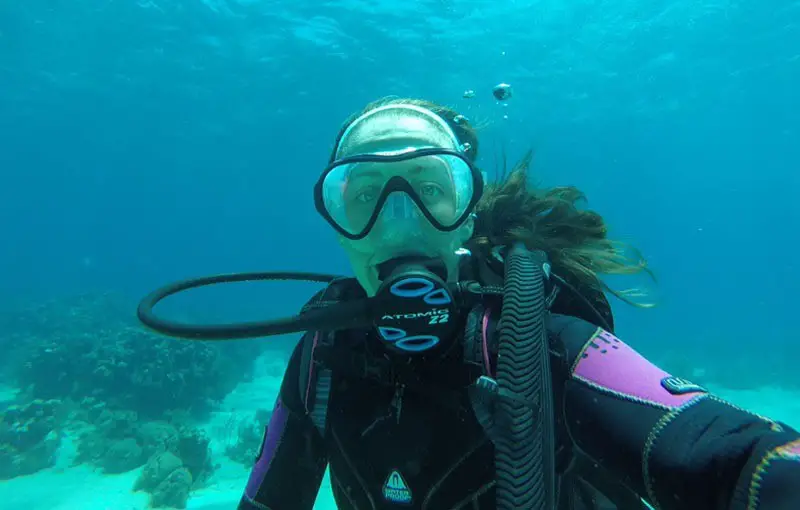
If You Want to Work in Scuba Diving
Working in the dive industry can truly be a dream come true. You’ll be diving every day, blowing bubbles and making people smile.
You might be teaching people to breathe underwater for the very first time, or maybe you’ll lead experienced divers around some of the more interesting dive sites in your area.
You’ll have the opportunity to work outdoors, to have a constantly changing office, and to enjoy being with happy people (nearly) all the time. People on vacation are generally good-spirited!
And even if you work at a dive shop in a non-touristy area, you’ll still be working with people who so adamantly love diving that they’re willing to do it regardless of the visibility or the convenience of it.
Take it with you anywhere
If you want to work in scuba diving, you truly have endless options for where you can live and how you work.
You could stay locally wherever you are in the world. If there isn’t yet a dive center nearby, that’s your opportunity to open one.
Even if you don’t live on the water, dive centers can offer to start courses using a pool and a classroom, plus you can organize dive trips anywhere.
Whether it’s a road-trip or an international trip, dive clubs love traveling together to share this crazy adventure.
You could also move to a popular diving destination and work there. Think: tropical islands!
You could work on a liveaboard anywhere in the world. Or at an aquarium. Or with a conservation organization. Or any other of a variety of jobs that involve scuba diving. Heck, you can even collect golf balls from lakes!
The point is, if you really want to work in scuba diving, you will do it regardless of all the insights I’m going to share.
And I 100% encourage you to pursue that dream! It’s led us to some pretty amazing experiences and I know diving will continue to influence our future work and life decisions.
With that said, here we go with some truth bombs…

Scuba Diving is Discriminatory
Scuba diving is an expensive industry to get into. Know that we all joke about PADI standing for Put Another Dollar In.
Also know that many of the world’s most popular diving destinations are filled with foreign workers because locals couldn’t afford the certifications.
That’s a reality.
It bothered me when we lived in Roatan, an incredibly popular island for scuba diving in the Caribbean.
I managed a watersports shop and hated the constant cycle of foreign workers coming and going, without the opportunity to hire local divemasters or instructors. They simply did not exist in large enough numbers.
The primary reason for that was the prohibitive cost.
Scuba diving is an expensive sport. Adding the cost of courses, the cost of gear, the cost of maintaining that gear, plus the cost of insurance/liability protection completely just prices out most people from developing countries.
Scuba diving is a popular activity in many developing countries.
That’s a pretty crappy scenario for locals who see wave after wave of foreigners coming in to work locally at some of the higher-paying jobs in the area.
How to Change That…
What I did love about Roatan was the herculean effort by the Roatan Marine Park to support locals who wanted to work toward becoming dive professionals.
Through funding provided by international organizations, the RMP financially supports local youth from Open Water through the professional Divemaster certification.
The program also requires participants to do local projects in conservation or environmentalism, like recycling programs, educating children, or organizing a coastal cleanup.
At the shop I managed, we ended up taking on eight local guys and seeing them through their Divemaster certifications.
Those certifications are the first level of professional diving – meaning each of those guys then had the opportunity to work at any other dive center on the island should they choose to do so.
It also opened up a door to working as a DM anywhere else in the world.
Getting to the DM level means higher pay, better job opportunities, and the option to continue on and become an Instructor.
But, without that funding and the hard work of the Marine Park, we simply could not have offered those courses for free.
Because diving is super expensive!
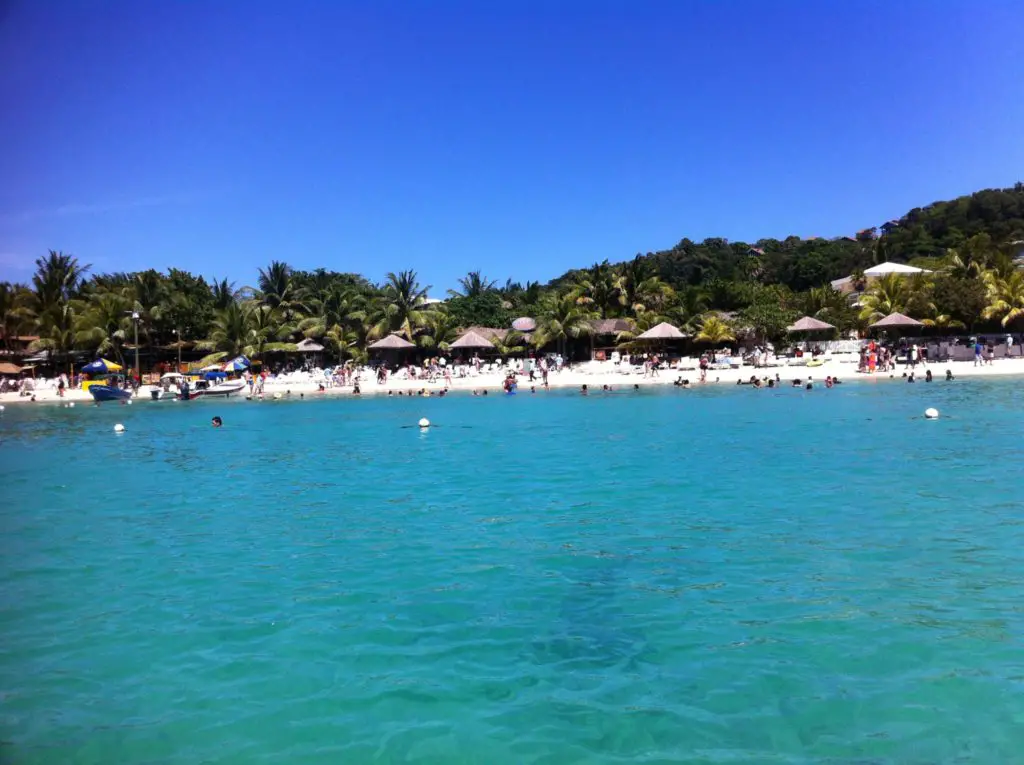
Scuba Diving is a Dude’s Industry
I say this as an uber-feminist. Yes, there are women in diving. Of course. But – like it or not – you will walk into dive shops around the world that are total bro shops.
That’s not to say that women aren’t welcome there, but being allowed in and being brought into the fold are different altogether.
Personally, I would never work in a shop that doesn’t have a woman at some level of ownership or management. Now, before you go all keyboard warrior on me, please listen…
Women are underrepresented in diving. PADI has held an annual Women’s Dive Day specifically for that reason. PADI also does a wonderful job of highlighting female Ambassadivers and offering them a platform to reach other divers and potential divers.
But then there’s the reality of the industry.
I’m not going to sit here and make blanket statements about male chauvinism.
But in an industry where everyone works in bathing suits, where jobs are physically and emotionally exhausting, and where women are disproportionately represented…yes, it can be a harsh environment for a female dive professional.
Wondering about sexism in the dive industry? Read this long but incredibly thorough article from Diver Magazine
Here’s another perspective on sexism in diving from World Adventure Divers
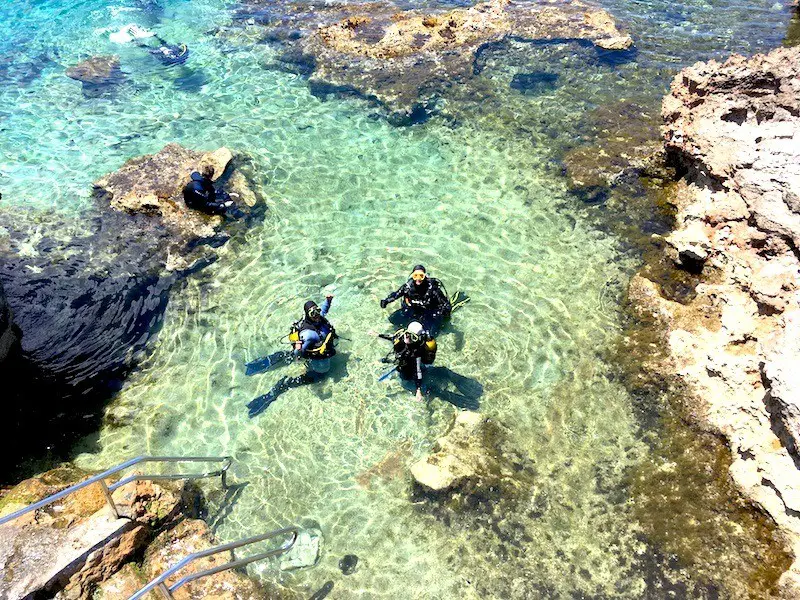
The Pay is Crap
Again, I say this knowing that there are exceptions to everything. You might find a very well-paid position, especially on a liveaboard where you have no bills! Or perhaps at a dive shop with regular office hours that only sells gear.
But, more generally, the pay is crap. That’s my honest assessment. Here’s the thing though: if you love what you do, you just don’t care.
That’s the beauty of working in this industry. If you love scuba diving and every aspect of it, then you seriously will not even care about your paycheck.
That being said, we all have bills to pay.
Everyone I personally know who works long-term in the dive industry has a second income. Some people worked for a long time in a higher-paying job and have solid savings or some are actually retired from a first career and receive a pension.
Some people have real estate to rent out, others have a second job (bartending, waiting tables, or an online side hustle). Some people have a family offering financial support.
All of these can help supplement your dive income.
Just know that you will likely have to supplement your dive income. That is, unless you are able to live simply and don’t need savings.
You can live off of what you make as a diver — again, generally speaking, since I haven’t lived in every single location with diving! But what you typically can’t do is live lavishly, travel often, nor save much.
For some people, that’s no problem at all!
For us, we prefer to travel and to be able to visit our families and friends. We like to know our costs are covered and we have something else to fall back on in an emergency. Diving alone just doesn’t cut it.
Some pay examples…
For a quick reference, in Roatan, my husband earned $5/tank or 35% commission on a course. There are no sick days, no personal days, no vacation days. You don’t work, you don’t get paid. It’s that simple.
Get a Roatan dive instructor wages breakdown from my friend Rika at Cubicle Throwdown
In Scotland, my husband considered a job at the National Aquarium to work in their education and conservation efforts. He would have spent more on the commute than he would’ve earned. Negative pay for just the 50-minute commute.
In Malta, my husband earned €3.73/hour. And that was with his bonus for being both a PADI and SSI instructor! For the record, Malta’s minimum wage was €4.50/hour, which is still pretty terrible but would’ve been a nice little pay raise if he actually received it.
Getting your accommodation and meals covered by an employer makes a dramatic difference – check these case studies from Swiss Nomads
Pay can vary widely based on the type of dive industry job – take a look at this article from Girls That Scuba
Dive professionals rely on tips, which might be fantastic or they might be a few beers at the bar after work. Too bad beers don’t pay rent!
Need advice on tipping in Roatan? Read this from my friend Rika at Cubicle Throwdown
The irony of all this is combining my first point with this point: that scuba diving is an expensive hobby, yet dive professionals get paid pennies.
So, where does all the money go? Well, running a dive center is very expensive. Much of what you, as a student or fun diver, pay goes to maintaining the dive center.
Also, dive professionals are a dime a dozen with no pay protections at all. Which leads me to my next point…
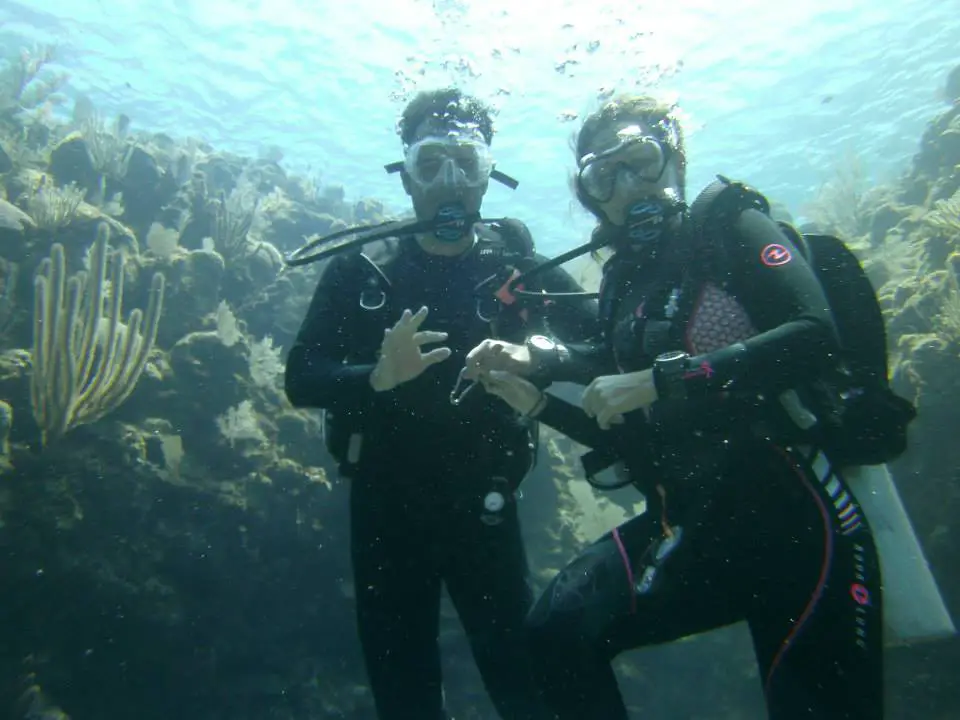
Dive Professionals Are a Dime a Dozen
You are just one of many people who aspire to work in scuba diving. So, guess what? When you’re a dive professional and have countless new and aspiring dive professionals chomping at your heels, you have no negotiating power.
That means your employer does not have to care at all about you.
That’s not to say that no dive shop owner or manager cares, but they certainly don’t have to. If you find one who does, stay there! Otherwise, you are utterly and completely replaceable.
Let that reality sink in for a second…
You can’t negotiate for higher pay because someone else will do it for less.
You can’t ask for a day off because someone else doesn’t need one.
You can’t take a vacation because someone else will take your job while you’re gone.
You can’t negotiate anything related to your job because there are countless other people who desperately want to work in scuba diving and they won’t care about wages or hours or not having days off for weeks in a row. You just can’t.
What that means in reality…
So you work. You work from 7am to 6pm. Or from 8am to 9pm after a night dive. You’ll work 6 days a week normally, with many weeks just rolling together without a day off anywhere to be seen.
When you do get a day off, you’ll likely find out the day before. That’s just the nature of the tourism industry when you need to cater to people on vacation plus weather conditions and other employees.
You can’t plan for a weekend off, you’ll work harder on holidays than on regular days, and you will do it all with a smile on your face to greet your guests and pander to them all day.
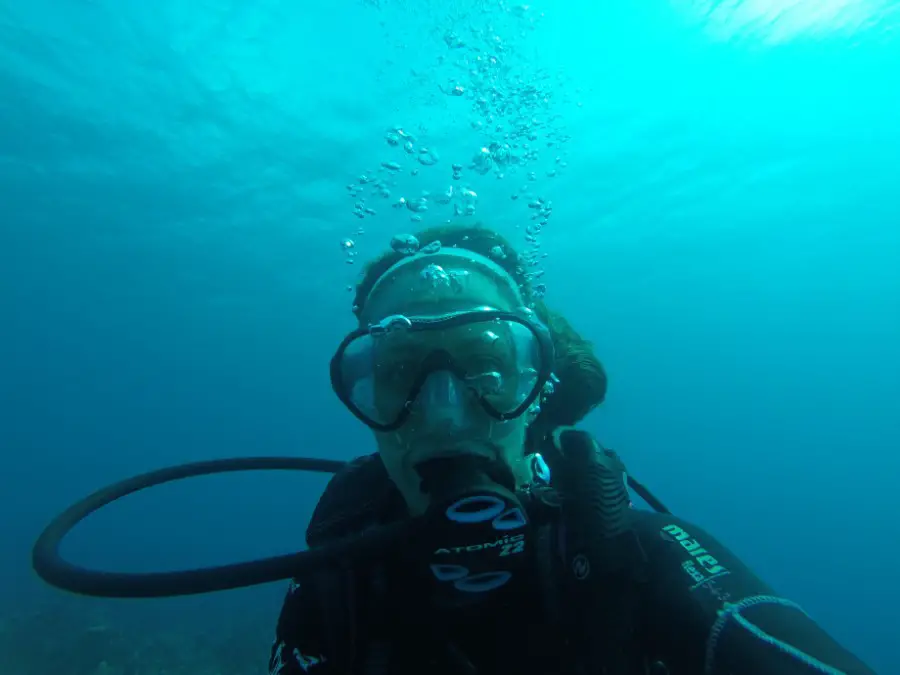
Work in Scuba Diving. Do It.
So, I’ve said my piece.
Now, I encourage you to go work in scuba diving. Do it.
Do it because you’ll meet so many extraordinary people from all walks of life.
Go work in diving because you love the water and you want nothing more than to protect our amazing coral reefs from detrimental practices.
Lead by example
Teach your students proper buoyancy and teach them about conservation.
Demonstrate good dive behavior to your guests and encourage them to collect recent trash on every dive.
Be a protector, an educator, an inspiration.
Work in scuba diving because it can show you the world – the whole world.
Do it because the oceans need passionate people who love diving more than fair pay, more than days off, and more than equality.
But then fight for each of those as well. Fight because you deserve better.
Speak up
Encourage dive centers to charge more. Talk to your fellow dive workers about supporting each other, rather than undercutting and driving each other down.
Discourage rude comments and jokes about women’s bodies – and don’t just say it doesn’t happen and get defensive. Stand up when you hear it and create a better environment for everyone.
Seek out opportunities to help the local community where you live. Whether it’s offering free DSDs to locals or asking for funding to certify locals through the Divemaster level as the Roatan Marine Park did.
Be grateful for your opportunity to live and work there, and then work hard to make it possible for locals to run their own industry.
Know your worth
As dive professionals, you are responsible for lives. The safety of your group of divers is in your hands, the protection of those coral reefs is your job.
The industry should treat that role with dramatically more respect.
But if you at least go into it knowing what’s in store, I hope that you’ll be even more willing to stand up and to speak up.
Speak up for the reefs, for safety standards, and for each other.
Go work in scuba diving regardless of what I say. That experience changed my life for the better and I am eternally grateful for all of the lessons I learned because of diving.
Liked this post? Pin it!
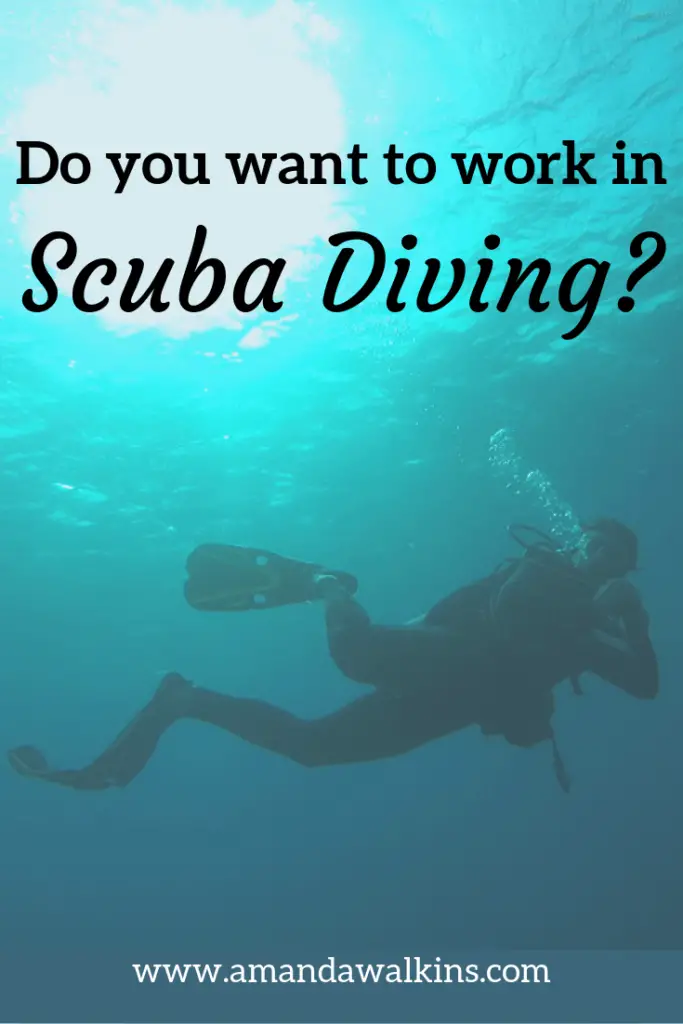
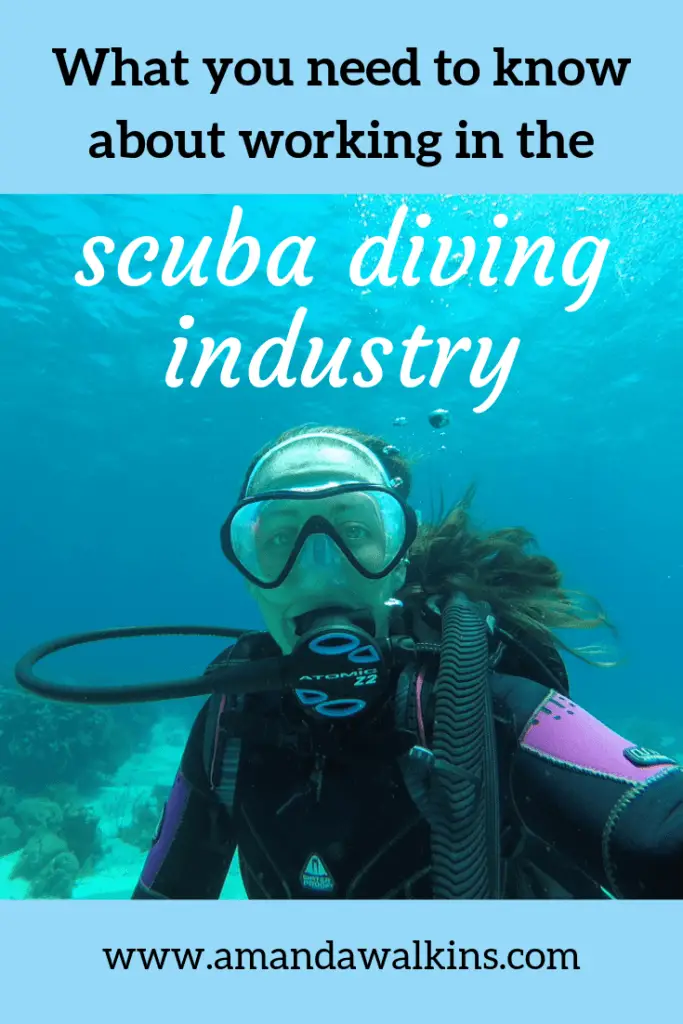
Looking for more?
- Start with My Expat Timeline to see where I’ve lived
- Get all the Scotland expat info here
- And the Roatan expat info here
- See my travel destinations
- Subscribe to my newsletters to stay in touch!

